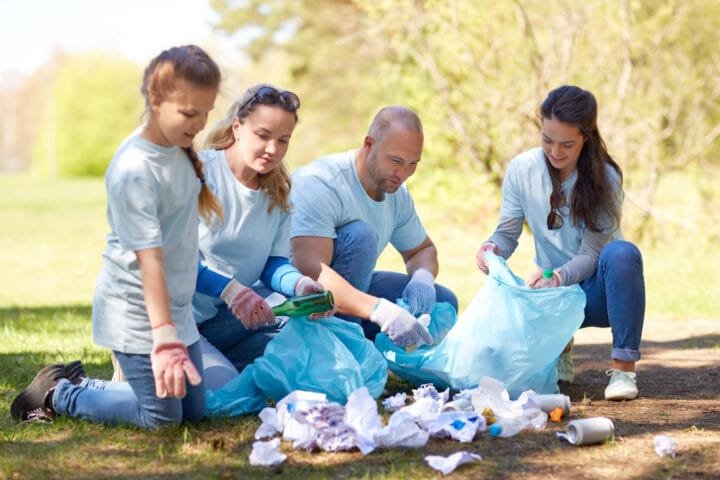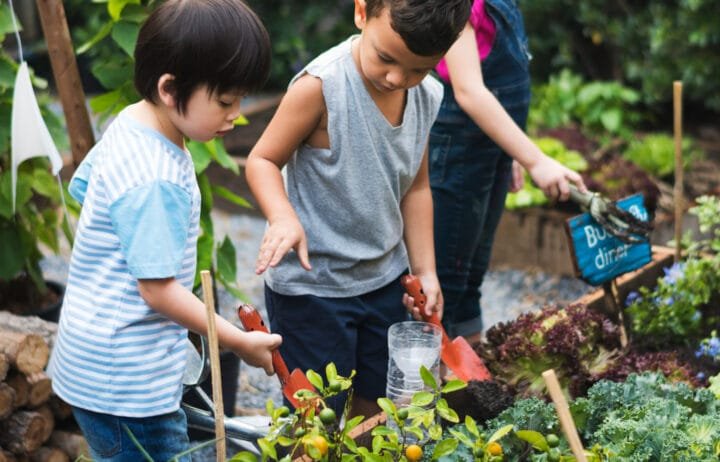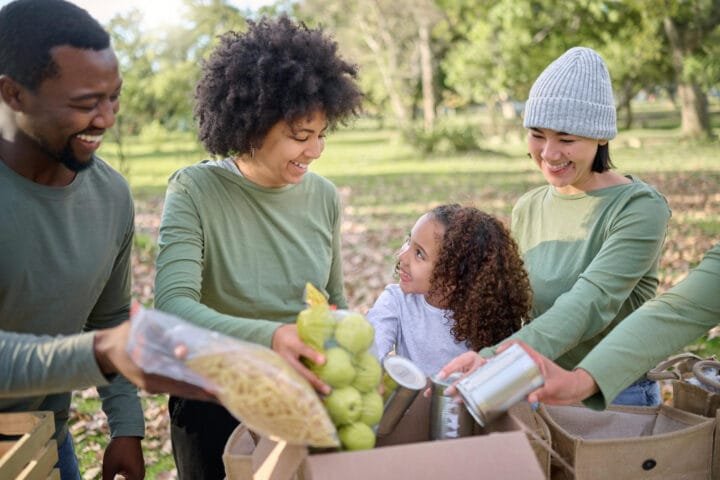The Hidden Cost of Clicks: How Does Social Media Pressure and Bullying Affect Kids?
How to Get Teens Growth Mindset: The Secret They Don’t Teach in School
The “Self-Exploration” Talk: How to Properly Talk to Young Children About Masturbation
Do Newborns Have Bad Dreams? Decoding the Secret Language of Infant Sleep
When Should Kids Stop Confusing b and d? The Definitive Answer is Here!
Why Kids Hate Onions: The Ultimate Guide to Understanding and Overcoming the Aversion
Why Toddlers Listen to Others But Not to Parents? A Deeper Look
The Importance of Vitamin C for Pregnancy: Benefits, Sources, and Safety
20+ Epic Games to Play in the Woods: Fun, Free, and Fantastic!
Beyond the Slammed Door: Understanding The Sound of a Teen Girl Angry
How to Get Along Better With My Teenage Sons: Mistakes to Avoid at All Costs
90 Fun Things to Do with Teenagers: Simple Ideas for Lasting Memories
My Adult Daughter Talks to Her Friends But Not Me: Am I Losing Her?
Unseen Risks: Unpacking Why Should Children Not Look Over the Younger Sibling?
From Chatterbox to Clam: Why is My Kid Suddenly a Clam Around Certain People?
The Only List You’ll Need: 50+ Couple Things to Do When You Don’t Have Your Kids
Connection Over Correction: Dealing with Teens on Their Phones During Dinner
Debunking the Myth: Why Parents Only Talk About Their Problems?
Timing is Everything: When Is the Best Time to Buy a Breast Pump (From Someone Who Learned the Hard Way)
Crush Apathy with Compassion: Family Volunteering for a Better World

Beyond the Xbox: Why Family Volunteering is the Ultimate Level-Up for Your Family
Do you remember playing epic video games with your friends where you had to overcome obstacles and triumph, feeling as if you could achieve anything in life? It is a lot like that. Moreover, the rewards are much more meaningful than any virtual trophy. You can tackle real-world challenges with your family and make a lasting difference in your community.
Our children deserve to grow up being kind, compassionate, and engaged citizens, but how do we do it? On the other hand, real-life experiences are more valuable than lecture notes and textbooks. This is where family volunteering comes in. For raising awesome humans, it’s like a cheat code.
From “Me” to “We”: Building Stronger Family Bonds Through Service
Think back to your childhood. What memories stand out most to you? They involve shared experiences with your family when you learn how to build a fire on a camping trip. When you painted your grandma’s fence together, these experiences helped build strong family bonds. Volunteering provides them with a whole treasure trove.
Family activities such as cleanups in parks, charity drives, and volunteer work at animal shelters allow families to connect more deeply. You’re working together toward a common goal, relying on each other’s strengths, and creating memories that will last a lifetime.
- Shared experiences strengthen family relationships: According to a study published in the Journal of Family Psychology, families who participate in shared activities report more cohesion and less conflict between parents and children.
- Volunteering enhances communication and cooperation. To achieve a shared goal, families must communicate effectively, negotiate roles, and compromise, which is essential for a healthy family relationship.
- Discovering hidden talents and fostering appreciation: During volunteering, family members can see each other more clearly, recognizing their strengths and skills they may not have been aware of. My son, who usually shies away from social interactions, surprised me with his natural ability to connect with the elderly residents at the nursing home where we volunteered. It was incredible to see.

Raising Empathy Superheroes: How Volunteering Cultivates Compassion in Children
Nowadays, where screen time dominates our attention, and instant gratification reigns supreme, kids can quickly become detached from others’ reality. The act of volunteering provides a powerful antidote to this problem. As a result, they develop empathy and social responsibility, understand others’ challenges, and break stereotypes.
The first time my daughter and I volunteered at a local soup kitchen, she was shocked to see people her age waiting for food. Because of this, she began asking questions, eager to gain a deeper understanding of the world around her. The firsthand experience was a pivotal part of her life that would not have been possible without it.
- Exposure to diverse realities broadens perspectives: Through volunteer work, children can meet people from different socioeconomic backgrounds and walks of life, challenging preconceived notions and cultivating a deeper understanding of the world around them.
- Developing a sense of responsibility and agency: Children involved in their community develop a sense of responsibility and the knowledge that they have the power to make a positive impact, which empowers them to become active and engaged citizens.
- Breaking down stereotypes and fostering acceptance: The opportunity to volunteer promotes tolerance, acceptance, and belonging by interacting with people from diverse backgrounds. According to a study by the Corporation for National and Community Service, youth who volunteer are more likely to have a positive attitude toward people of different races and ethnicities.

Beyond the Feel-Good Factor: The Tangible Benefits of Volunteering for the Community
It is undeniable that family volunteering benefits individuals, but we should also consider its impact on the community. Volunteers are essential in many sectors, such as education, healthcare, environmental conservation, and social services.
The books you helped organize at the library are now accessible to children who cannot read them. The park you helped clean up became a safe and enjoyable place to gather for families. The soup kitchen meals you helped serve were comforting and nutritious for those in need. These are not just tasks completed but tangible achievements that your family can be proud of, knowing that you’ve made a real difference in your community.
- Addressing critical needs and filling resource gaps: Over 63 million Americans volunteer yearly, providing valuable services to organizations and communities. Volunteerism plays an essential role in addressing critical needs and filling resource gaps.
- Strengthening community bonds and fostering collaboration: People build relationships, break down barriers, and make a stronger sense of belonging by volunteering together. Volunteering creates a sense of community and boosts collaboration among residents.
- Inspiring others to get involved and creating a ripple effect: Family volunteering sets an example of positive change by motivating others to give up their time and skills. This creates a ripple effect of positive change, inspiring others to get involved and become more compassionate and engaged in their community.
Leveling Up Your Volunteer Game: Tips for a Successful and Meaningful Experience
The benefits of family volunteering are endless, but let’s talk about how to make it successful and enjoyable for everyone. Planning and preparation are essential to making your family volunteering experience successful.
Choose the right quest for your family. What do your family’s interests and skills cover? Do you have a passion for animal welfare, conservation of the environment, or helping older people? You’ll feel more engaged and motivated if you find a volunteer opportunity that aligns with your family’s values and interests.
Secondly, plan your party. Explain the purpose of the volunteer activity, who benefits from it, and how their actions can make a difference to them. Answer their questions and emphasize the importance of their contribution. But remember to celebrate your accomplishments. Recognize the hard work and effort your family has put in, and make sure they feel appreciated and recognized for their contributions.
- Matching interests and skills to opportunities: VolunteerMatch and Idealist have searchable databases of volunteer opportunities, including family-friendly options. You can also find opportunities in your local community by contacting local schools, nonprofit organizations, and community centers.
- Age-appropriate engagement: Volunteer activities can benefit children of all ages: collecting food donations, doing artwork for seniors, or helping to maintain a community garden. Children feel successful and engaged when they are involved in age-appropriate activities.
- Make it a sustainable family practice: Make small, manageable commitments and gradually increase your involvement. Include volunteering in your family routine, and celebrate your accomplishments together.

The End Game: Reaping the Rewards of Family Volunteering
You can create shared memories and learn valuable lessons through family volunteering, which is more than a feel-good activity. It’s about investing in your family’s happiness, children’s character, and the community’s strength.
Please don’t wastetime on screens; put away the board games (unless they’re cooperative games! ) and go on a real-life adventure together. Find an opportunity that appeals to your family, and experience the joy of giving back. It’s one of the most rewarding journeys you’ve ever had.
FAQs
Think Local: Your best bet is to start right in your backyard! Check with your local United Way, community centers, places of worship, and even your kids’ schools. Lots of schools have volunteer programs or team up with local organizations.
Hit the Web: Websites like VolunteerMatch and Idealist are treasure maps for volunteer opportunities. You can search for family-friendly options and find something that speaks to your crew.
Don’t Be Shy: Reach out to organizations you admire directly. Many smaller non-profits might not have a formal program but would be thrilled to have your family lend a hand.
Every Little Bit Counts: Even the littlest helpers can make a difference! Start with simple acts of kindness, like donating old toys or helping to bake cookies for a neighbor.
Grow with the Flow: As your kids age, you can gradually introduce them to more structured activities like collecting food donations, creating artwork for seniors, or helping out at a community garden.
Focus on the Feels: The main goal is to instill a sense of compassion and giving back, not necessarily to accomplish a monumental task. Let them experience the joy of helping others; the rest will follow.
Baby Steps: Don’t feel you must conquer the world in a day! Start with small, manageable commitments and gradually increase your involvement as your family gets comfortable.
Keep it Fun: Let’s be honest; no one wants to do chores, even for a good cause. Choose activities everyone enjoys, celebrate your accomplishments together, and maybe even create a “family volunteer jar” where everyone writes down their ideas for future projects.
Consistency is Key: Just like brushing your teeth or having family dinners, make volunteering a regular part of your family routine. The more you do it, the more natural it will become.
Standard Ground: Look for projects that offer a variety of tasks or that address a cause everyone can get behind. You can all agree on helping at an animal shelter or cleaning up a local park.
Variety is the Spice of Life: Take turns choosing different volunteer activities to cater to everyone’s interests. One month, you might volunteer at a soup kitchen, and the following month, you might help at a community garden.
Try Something New: Encourage family members to step outside their comfort zones and try something new. You might be surprised at what you discover!
Empathy All-Stars: Volunteering opens kids’ eyes to different realities, helping them develop empathy and understanding for others. It’s like walking a mile in someone else’s shoes, but way more fun.
Confidence Boost: Contributing to their community gives kids a sense of purpose and accomplishment. They’ll realize that they have the power to make a positive impact, and that’s an incredible feeling.
Skill Masters: Volunteering is a real-life training ground for valuable skills like teamwork, communication, and problem-solving. These are skills that will serve them well in all areas of life.
World Explorers: It helps kids understand the world around them and appreciate diversity. They’ll meet people from all walks of life and gain a broader perspective on the world.
Future Leaders: Volunteering instills a sense of civic responsibility and inspires kids to make a positive impact. Who knows, they’ll even run for president one day!
Recommended Books
- The Busy Family’s Guide to Volunteering: Do Good, Have Fun, Make a Difference as a Family! – This book offers practical advice, resources, and a variety of activity ideas for families with children of all ages, making it easier to integrate volunteering into your busy lives.
- Volunteer Vacations – Combine your love for travel with giving back! This book guides you through planning meaningful volunteer vacations for the whole family.
- The Whole-Brain Child: 12 Revolutionary Strategies to Nurture Your Child’s Developing Mind – While not solely focused on volunteering, this book provides valuable insights into child development and how shared experiences like volunteering can strengthen family bonds and emotional intelligence.
- Last Stop on Market Street – This award-winning children’s book subtly explores themes of community, helping others, and appreciating different perspectives, making it a great conversation starter for younger children.
- The Giving Tree – A classic tale about generosity and the importance of giving back, this book can prompt discussions about selflessness and the impact of our actions on others.
- UnSelfie: Why Empathetic Kids Succeed in Our All-About-Me World – Delve into the science of empathy and discover practical strategies for raising caring and compassionate children in today’s world.
Related Posts




































































